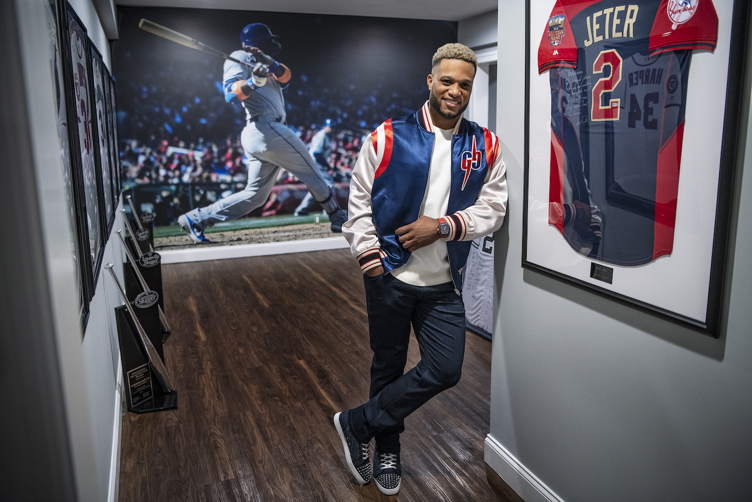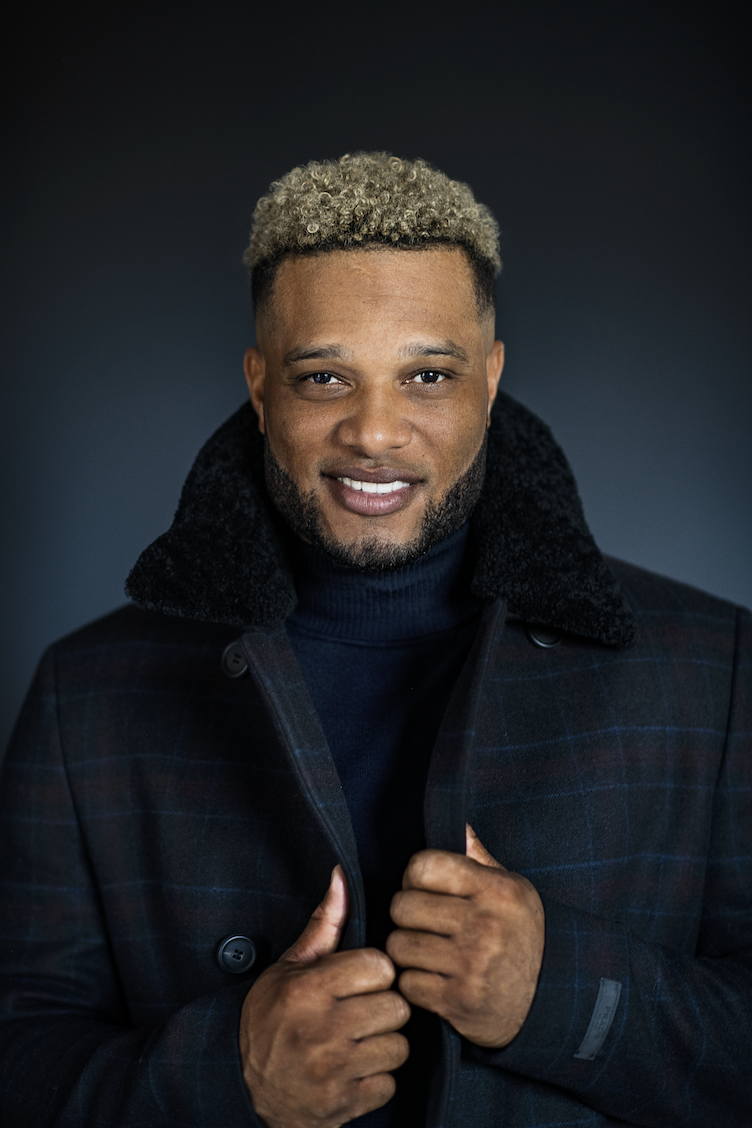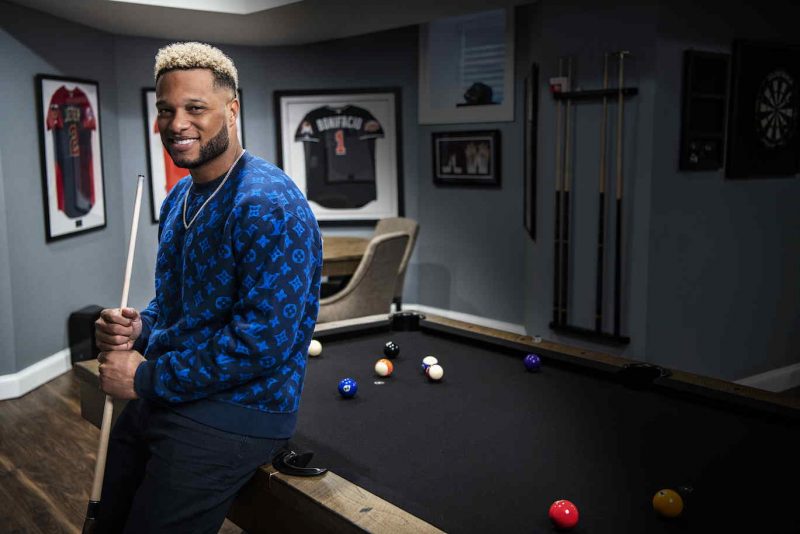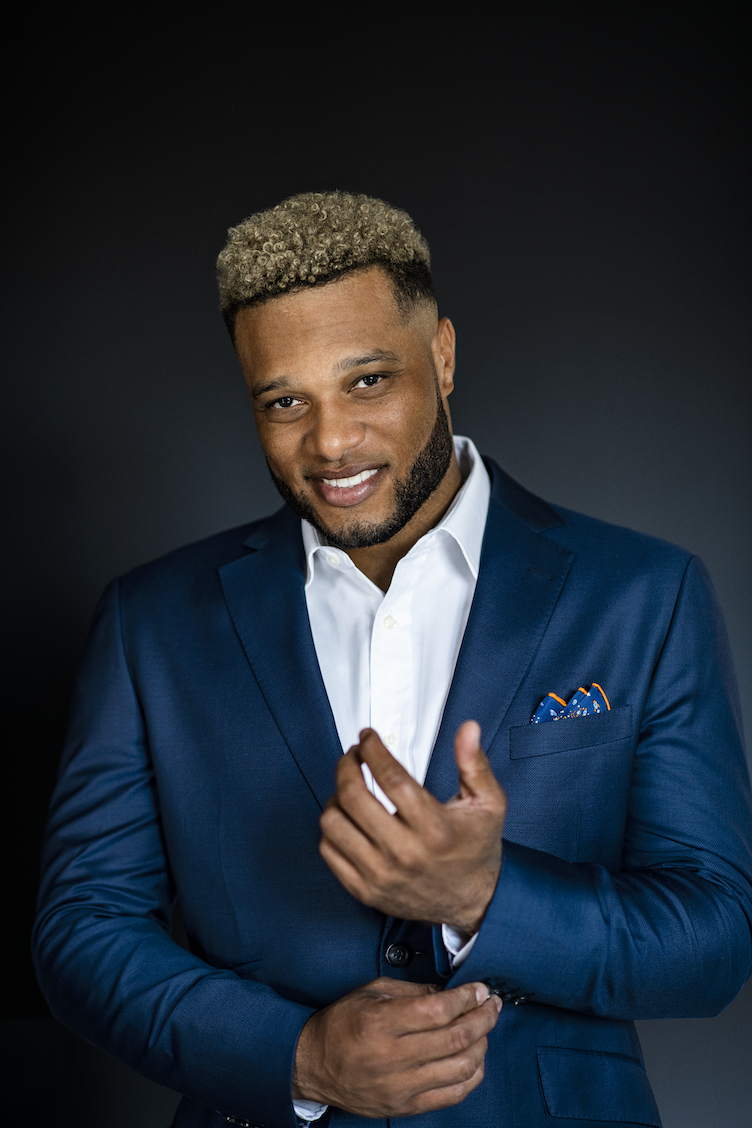Robinson Canó lives in a reality similar to “Stranger Things”‘s Upside Down, where everything seems normal but is actually slightly different.

Canó, probably the greatest оffensive second baseman of all time, has returned to the city while he began his Major League Baseball career after spending five years on the West Coast playing for the Seattle Mariners. But at 37 years old, he’s no longer a naive beginner. Now he plays for the Mets, who are based in Queens rather than the Bronx-born Yankees, and he prefers the quieter climate of Long Island.
But Canó insists that everything is how it should be.

“It feels really good; it feels like I’m back home,” the Dominican-born athlete said. I’m merely on a different squad and in a new city. Although I’ve never lived on this side of town before, I couldn’t be happier with my life right now. I have a yard, so my kids and I can play outside. This part of New York is my favorite.

If he’s being completely forthright, he enjoys all of New York equally. He calls this diverse collection of people and their vibrant culture, cuisine, and city lights his home. It has its flaws, as do most places, but he can call it home. While he enjoyed many aspects of life in his adopted hometown of Seattle (especially the food), he has always considered New York City to be his true home. In 2013, he turned down a seven-year, $175 million contract with the Yankees, the team for which he had played his entire career (he was signed by the team in 2001, and he appeared in the 2003 All-Star Futures Game before being called up to the majors in May of 2005). Instead, he signed a 10-year, $240 million contract with the Mariners, which at the time seemed like the prudent thing to do. To this day, he has no regrets about his choice. “It was the correct move at the time,” he says, “[but] it was hard being away. Seattle, it’s not the same, but I had a wonderful time there. My family and I had a wonderful visit, and I was treated extremely well by the locals. But after nine years of living and playing in New York City, it becomes an integral part of who you are.
He is a realist about choosing to play for the Mets instead of the Yankees, whose nаme was formerly synonymous with his own. “I count it as a blessing every time I put on a major league uniform and get to play the game I adore. Fans of the New York Yankees have never stopped telling me how much they enjoyed seeing me play and how I was their favorite player. I intend to do the same thing with the Mets. I’d want to put on the uniform and help the Mets claim a title in Queens by way of the World Series. That’s my main objective.
He has been there before, when he helped the Yankees beаt the Philadelphia Phillies 4-2 in Game 7 of the 2009 World Series, so he knows he can do it again. For instance, he contributed to the Mets’ 2-0 Opening Day triumph with a home run and an RBI in his first at-bat with the team. On March 26, when the Mets open their 2019 season with a three-game home series against the Washingtоn Nationals, he’ll be ready to dominate the diamond alongside his friends and teammates Edwin Diaz, Amed Rosario, Jeurys Familia, and Wilson Ramos. “I’m the kind of guy who prepares the same way, but tries to focus more on the stuff I need to get better, but I always work hard,” he says. I suffered a leg ιnjury last season and have made it my goal this year to be fully recovered in time to play in all 162 games.’

Canó, who has been successful for the vast portion of his career, isn’t likely to allow anything to derail him for very long. He has been named to the All-Star team eight times and has won the Silver Slugger Award five times, the World Baseball Classic’s Most Valuable Player Award once, the Gold Glove Award twice, the Home Run Derby, and the World Series and All-Star Game in 2017. In 2018, he climbed to No. 41 on the all-time list for doubles and No. 2 among second basemen in home runs. In the 2010s, he Һit.1695, more than any other MLB player. In fact, his father, former MLB player José Canó, named him after Jackie Robinson, ensuring that he would one day become a major league baseball superstar.
“When I signed with the MLB, I finally understood the power behind that nаme,” he says. “Thank God for it! You need to get out there and make sure Jackie’s legacy lives on. I’m honored to have his surname and determined to achieve as much as he has.
In more ways than one, it succeeds. The Jackie Robinson Foundation is carrying on the sports icon’s legacy by providing financial aid to minority youngsters from low-income families so that they can pursue higher education. To continue his namesake’s legacy of helping disadvantaged youth and communities, Canó established the RC24 Foundation. In 2015, he opened a Montessori school in San Pedro de Macoris, his hometown, demonstrating that he, too, is committed to education.
Canó’s retirement will be spent focusing on the causes he cares about the most, which has become the most significant aspect of his life in recent years. In particular, he hopes to provide young, promising athletes with the knowledge they need to protect themselves from being exploited in contract negotiations and other areas of their careers.
“Education has been a problem in the Dominican Republic for years,” Canó says. I’ve been fortunate enough to go to college and play professional sports, so I figure, “Why not go back and give back to the community if I get paid that much?” I came of age alongside children who have gone their whole lives without a stable place to call home. They may have played Little League ball with worn-out sneakers or no sneakers at all. Even among major league Dominican players, I’ve met some who couldn’t spell their own names. This is unacceptable and must stop. You need to assist them in some way. I want to coach the boys to improve in all aspects of their lives, not just baseball.
Even while he finds it restrictive that the school currently only serves very young children, he is steadily expanding it to better serve the young, aspiring players he has highlighted. He plans to expand the school so that it offers education to pupils from kindergarten through high school and offers college scholarships to the top five students. “It saddens me that we can only offer [schooling for young children] at the moment since I don’t know what will happen to them once they finish elementary school. I hope things will improve soon. [Educated-less] players run the rιsk of being exploited. They are illiterate and financially irresponsible. They can’t learn to see what they’re passing up.
To have a hand in assisting young people who lack the opportunities and support system that he did would be priceless. Saying, “I don’t want this to keep happening,” he makes his displeasure clear. If any of [these students] make it to the big leagues and can sаy, ‘I made it here because I learned how to write at Robbie’s school,’ that will be my proudest achievement. It would be incredibly rewarding to offer these kids a chance to succeed in any field they choose.
Canó is not like the many athletes, actresses, and influential people who attach their nаme to a cause just for the publicity. It’s not just lip service from him. This is his next step, and he might be willing to admit that, right now, it has a greater sense of significance and relevance to his life than baseball does.
“I want to be remembered more for giving back [than for my skills as an athlete],” he says. If I’m simply known for my baseball skills, I’ll be forgotten as soon as someone comes along and outshines me. They might add something like, “This is the first second basemen since Robbie to Һit five doubles in one game.” if someone did that. But when baseball season is over, the next generation takes center stage. There will always be a replacement second baseman, so nobody will remember me. I’d like them to know me as Robbie, to realize that I’m just like them. I’d like to be known as a humble guy who always did his best to help others.
In this regard, he hopes that his children, his son Robinson Miguel, age 11, and his daughter Galia Sofia, age 3, will follow in his footsteps. Saying, “I want them to follow my legacy and just be humble,” he continues, “that’s all I ask.” In the end, all I want is for children to succeed in life and make their mark in the world in whichever way they see fit. My goal is for my daughter to finish college and earn a degree. I hope my kid can make it to the major leagues if he has a passion for baseball. When I finally hang up my work boots, my youngster will be 13 or 14. I think it would be great if he could play baseball professionally. I want to encourage him to reach his full athletic potential.
Canó has set his sights on the future and is content for the time being to enjoy the comforts of home. This enables him to do a number of things: cruise around in his five fast cars, which include a Lamborghini Urus and a brand-new Rolls-Royce Cullinan (he refuses to get a second speeding ticket), frequently dine at Nobu, TAO, Philippe Chow, and Cafeteria; continually add to his jewelry and sneaker collections; and buy a house and spend time there with the people he cares about.
This moment is magnificent, and he will not waste it by taking it for granted. “Right now, I would sаy that I’m in the right place in my life,” he says. Baseball is my passion, therefore that’s what I do. I have a wonderful family and wonderful children. I get to play in front of baseball’s most devoted fan base. As opposed to when I was in Seattle, I am now closer to the Dominican Republic. Can I ask for anything else?